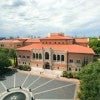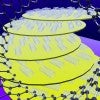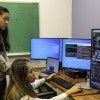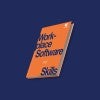
Electronic pathways may enhance collective atomic vibrations’ magnetism
A new study from Rice’s RAMBO laboratory and collaborators suggests the magnetism of phonons, collective atomic vibrations, is enhanced by electronic pathways.

Electronic pathways may enhance collective atomic vibrations’ magnetism
A new study from Rice’s RAMBO laboratory and collaborators suggests the magnetism of phonons, collective atomic vibrations, is enhanced by electronic pathways.

Rice student-athlete Ahalya Lettenberger named Marshall Scholar
Rice swimmer and recent graduate Ahalya Lettenberger is one of 51 students nationwide selected for a 2024 Marshall Scholarship, it was announced Dec. 11.

Working women feel unsupported by Christian congregations — even more progressive ones
As church membership declines across the United States, a new study from Rice University’s Boniuk Institute for the Study and Advancement of Religious Tolerance finds that working women do not feel supported by their clergy and churches, regardless of whether they’re involved with a more conservative or liberal congregation.

Rice MBA ranks among top 20 business degrees in the US, according to Poets&Quants
The full-time on-campus Master of Business Administration program from Rice’s Jones Graduate School of Business ranks No. 18 in the country, according to new 2024 rankings from Poets&Quants. The school rose 11 spots since 2023. This latest ranking makes Rice Business the No. 1 business school in Texas, according to Poets and Quants.

Rice-Hamburg U. of Technology launch research collaboration
Rice chemical engineer Walter Chapman is spearheading a collaboration with the Hamburg University of Technology’s SMART Reactors Collaborative Research Center, which aims to develop solutions in support of a transition from fossil fuel to renewables-based economic and production chains through innovative reactor design and development.

A new Rice University study of the remains of modern African antelopes found that AI technology accurately identified animals more than 90% of the time compared to humans, who had much lower accuracy rates depending on the expert.

The increasing use of carbon nanotubes (CNTs) — and a proposal in the European Union to ban the entire class of materials — highlights the need for an updated and standardized approach to assess human and environmental impacts of CNTs and products that contain them, according to a new collaborative study co-authored by Rice University researchers.

Chance twists ordered carbon nanotubes into ‘tornado films’
Rice scientists in the lab of Junichiro Kono have developed two new methods to create ordered carbon nanotube films with either a left- or right-handed chiral pattern.

If you’re one of the many people who watched The Jetsons and envisioned a future of flying cars and delivery vehicles, your dreams might not be far off.

Fewer women pursue careers in physics than biology, and scientists from around the world believe these differences come down to personal preferences, according to a new Rice University study of international scientists.

Rice engineers tackle hard-to-map class of materials
Rice materials scientist Yimo Han and collaborators mapped the structural features of a 2D ferroelectric material made of tin and selenium atoms using a new technique that can be applied to other 2D van der Waals ferroelectrics, unlocking their potential for use in electronics and other applications.

Key leaders from the Houston and French space industries will discuss the future of spaceflight at a conference at the Rice Global Paris Center Dec. 4-6.

Newest OpenStax textbook provides essential workplace skills to students
OpenStax’s newest textbook, “Workplace Software and Skills,” addresses the evolving needs of college and university students preparing for their careers with free, customizable resources. Just like the other 65 textbooks freely available in Rice University’s OpenStax library, this textbook is openly licensed and peer-reviewed.

Disc around star observed in another galaxy for the first time
Astronomers have uncovered evidence of an extragalactic accretion disk for the first time.

Kavli Exploration Award backs Rice-led sustainable carbon materials research
An international team of scientists led by Rice’s Matteo Pasquali has won a $4.1 million grant to optimize carbon nanotube synthesis. The award is a joint effort by The Kavli Foundation, with a $1.9 million Exploration Award in Nanoscience for Sustainability, and Rice’s Carbon Hub, which contributed an additional $2.2 million.